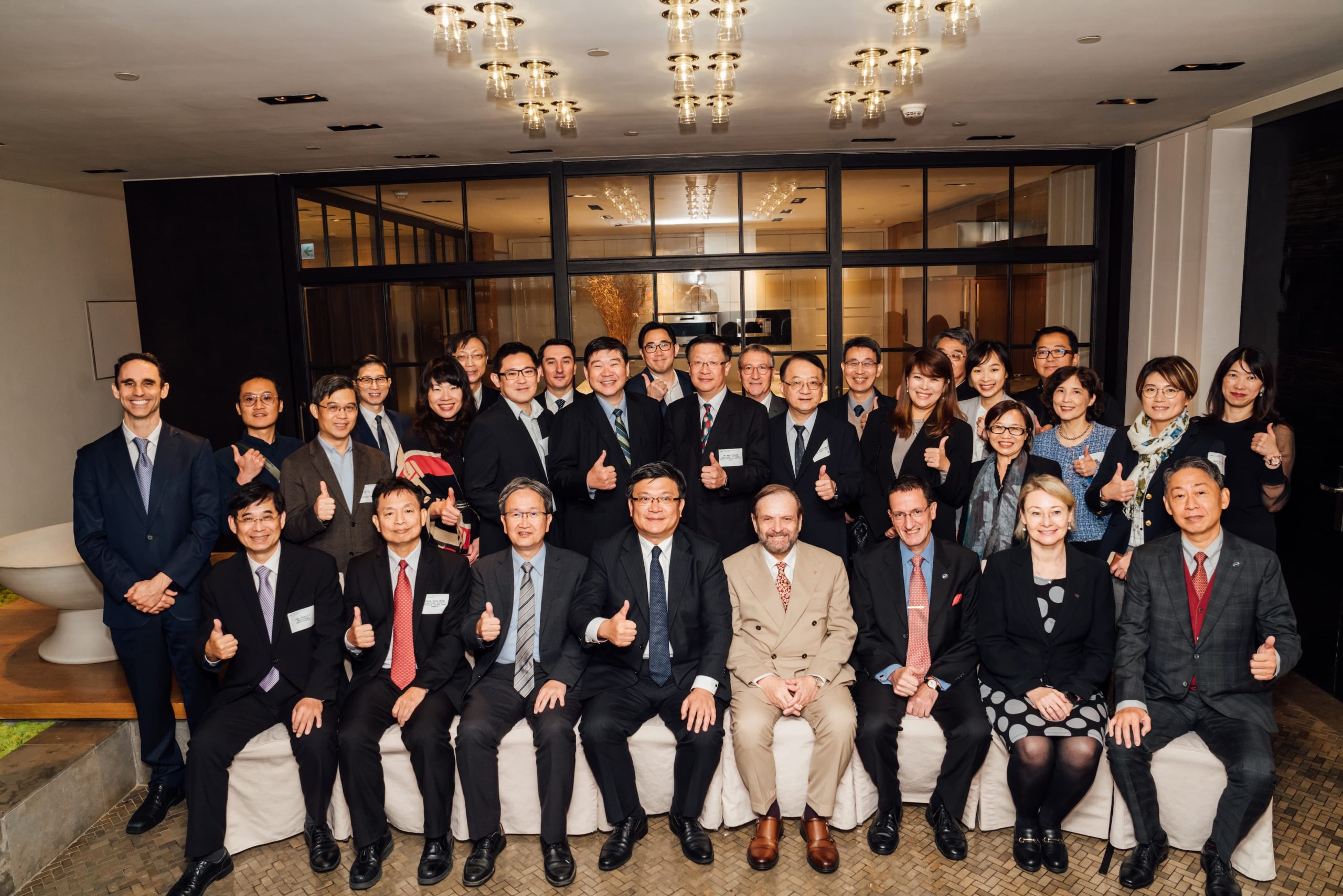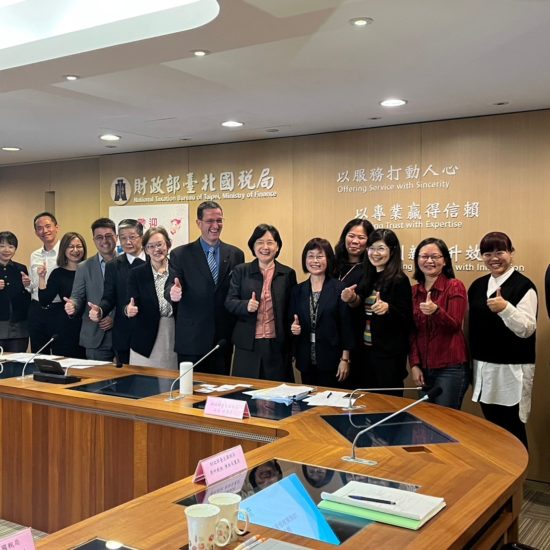Launch of ECCT-Taipower report

The ECCT and Taiwan Power Company (Taipower) today jointly released the “Paving the Way to Net-Zero Power Report”. The report offers proposals and showcases innovative solutions aimed at achieving net zero power in Taiwan. The report was launched at an ECCT Premium Event that was attended by senior executives from Taipower and the ECCT, government officials and ECCT members. Opening remarks were made by ECCT Chairman Giuseppe Izzo, Taipower President Wang Yao-Ting and Aleksandra Kozlowska, Head of Trade Section of the European Economic and Trade Office (EETO). A copy of the publication was presented to Tseng Wen-Sheng, Deputy Minister of the Ministry of Economic Affairs (MOEA), who gave a short speech. A brief summary of the report was presented by H. Henry Chang, ECCT Vice Chairman and Chairman of the ECCT’s Low Carbon Initiative (LCI).
Given that governments and companies in both Europe and Taiwan share the goal of reaching net zero greenhouse gas emissions by 2050, the purpose of the report is to provide policy and technological solutions to help Taiwan to move faster along the path to net zero power and overall net zero emissions.
The publication highlights innovative renewable energy and circular economy solutions showcased at a series of workshops jointly organised by the Taipower Research Institute (TPRI) and the LCI since April 2021 as well as in individual chapters submitted by representatives from the European Union, the Taiwan government and ECCT member companies.
The report is divided into four main sections covering energy policy, the supply side, the electrical grid and the demand side. The policy section includes separate chapters on zero carbon policies from the EETO, Bureau Français de Taipei (the French Office in Taipei) and the Taiwan government.
Each of the other three sections include summaries of the findings of various LCI-TPRI workshops, followed by chapters submitted by individual ECCT members showcasing their solutions for net zero power. There is also a chapter in the Electrical Grid section submitted by the MOEA’s Energy Administration on the government’s roadmap to net zero policies as well as a chapter submitted by the Taiwan Stock Exchange.
LCI-TPRI workshops that are covered in the report address topics including hydrogen, electric vehicles, energy storage, power grid upgrades and risk management, solar power, wind turbine blade recycling and floating offshore wind energy, to which 30 ECCT member companies and European trade office members have contributed their expertise.
In addition to coverage of the LCI-TPRI workshops, the report includes chapters from ECCT member companies on the topics of geothermal energy (Baseload Power), onshore wind energy (Enercon), floating wind energy (National Taiwan University), floating offshore wind certification (Bureau Veritas), insights on hydrogen development (TÜV Rheinland Taiwan), the hydrogen value chain (Bosch), the hydrogen economy (YARA Environmental Technologies), clean fuel of the future (Atlas Copco), decarbonising the semiconductor supply chain (Schneider Electric), energy savings (ABB), strategy for embodied carbon reduction (RCI Engineering), energy efficient lighting (Signify) and EVs for logistics (Gaius).
In his opening remarks, ECCT Chairman Giuseppe Izzo said that the report comes at an important time in Taiwan’s energy transition. He noted that while progress has been made in recent years, Taiwan has fallen behind in meeting its targets for renewable energy as well as electrification of mobility and energy efficiency. He stressed that it is in the interests of ECCT members, the government, the overall economy and society that Taiwan makes a smooth and rapid transition to net zero power. Doing so will not only strengthen Taiwan’s energy security but also create business opportunities for companies in a growing green energy supply chain, he said.
In his remarks, Taipower President Wang noted that Taipower will play an increasingly important role in Taiwan’s energy transition given greater electrification (especially of electric vehicles) and greater demand from industry. To meet these needs will require not only more renewable energy capacity but also a more modern and robust grid and energy storage capacity. Taipower is also exploring new areas of possibility, such as hydrogen. He noted that Taiwan has in-built advantages, including its ICT industry, which can aid in the transition. He also acknowledged the contributions of European countries and companies, especially in the areas of wind energy and best practice sharing.
In her remarks, Aleksandra Kozlowska reiterated that Europeans are the largest investors in Taiwan and dominant in the wind energy industry, which is helping Taiwan to transition to net zero power. She added that Europeans are also providing energy storage solutions to Taiwan. She concluded by referring to the EETO’s chapter in the report, which covers the EU’s pending Carbon Border Adjustment Mechanism (CBAM), something that Taiwanese companies will need to understand in order to be able to comply when CBAM is implemented.
In his remarks upon receiving a copy of the report, MOEA Deputy Minister Tseng said that through initiatives like the LCI-Taipower workshops, European companies had given the government and local companies valuable insights on ways to advance the energy transition. He said that government policies have to be informed by and evolve with new developments and that ongoing cooperation with Europe would help to accelerate Taiwan’s energy transition.

